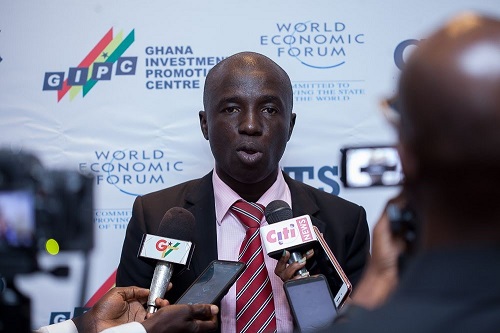More than 50% of Ghanaians who are subscribers to the National Insurance Scheme have urged the National Health Insurance Authority (NHIA) to intensify its public education campaign to equip subscribers with information to know their entitlements under the scheme.
This, when done, will help Ghanaians know the medications, treatments and services they can benefit from as subscribers to the scheme when they visit any accredited healthcare facility.
This was revealed in a research report on the NHIS launched in Accra by CUTS – a research, advocacy and public policy think-tank, with support from the Open Society Initiatives for West Africa (OSIWA). The report revealed that public education is urgently needed to reduce fraud and the collection of unapproved charges at various health facilities.
Speaking at the research report launch in Accra, the West African Regional Director of CUTS, Mr. Appiah Kusi Adomako, said it is about time the Scheme paid more attention to preventive care rather than curative care – hence the need for the National Health Insurance Authority to intensify public education to equip subscribers with information on their entitlement under the scheme. He added that the Scheme also needs to recruit claim managers, to assess claims from health-service providers and block leakages.
“While I applaud government for the improvement in health financing under the scheme, I urge that the challenges which have characterised the implementation of the scheme – including delays in transfer by government and the NHIS to service providers; charging illegal fees; and abuse of clients by some health workers – should be addressed,” he added.
The Head of Research at CUTS, Mr. Isaac Yaw Obeng, also emphasised that among a number of others, the report recommended the NHIA to establish customer-complaint centres nationwide. “Furthermore, the study showed that the provider [NHIA] does not have an established customer-complaint or recourse policy written down for customers to follow. Although there are avenues where customers can channel their grievances, most customers are not aware of them.
“Furthermore, the National Health Insurance Authority has done and continues to do a lot of work to improve the Scheme – but some challenges still persist, hindering its effectiveness. These include fraud, limited funding, information asymmetries, delay in payment of claims and poor service quality,” he added.
The National President of the Coalition of NGOs on Health, Mr. Bright Amissah-Nyarko, in his remarks recommended government should increase funding to the Authority to curb the out-of-pocket payment situation that has characterised the scheme. He cautioned health workers and health facilities which charge subscribers unapproved fees to desist from the act.
….CUTS, OSIWA launches research report on NHIS
A diagnostic research report on NHIS has been launched in Accra. The research, undertaken by CUTS with support from Open Society Initiatives for West Africa (OSIWA), seeks to advocate for reforms that are aimed at addressing challenges limiting effectiveness of the NHIS in Ghana.
It also seeks to advocate and influence policymakers and other relevant stakeholders to strengthen health outcomes and the welfare of subscribers by ensuring the NHIS and its accredited health-care providers provide maximum care to insurance subscribers, while at the same time reducing out-of-pocket expenses in using the scheme.
Presenting key highlights and findings of the research at the Coconut Groove Hotel, the Head of Research at CUTS Ghana, Mr Isaac Yaw Obeng, disclosed that both qualitative and quantitative approaches were used for the survey. According to him, the interviewees included fund managers, subscribers to the scheme, services providers and pharmacies spoken to in five out of the country ‘s16 regions. These were the Greater-Accra, Ashanti, Central, Eastern and Northern Regions.
Mr. Obeng emphasised that among several recommendations, the report recommended the NHIA to establish customer-complaint centres nationwide. “Furthermore, the study showed that the provider [NHIA] does not have an established customer-complaint or recourse policy written down for customers to follow. Although there are avenues whereby customers can channel their grievances, most customers are not aware of them.”
“For that reason, a significant number of customers have not utilised the existing redress mechanism. Moreover, the study found that providers do not generally conduct a customer needs assessment to determine the scheme’s gap from reaching its desired goals.”
In his remarks, the West Africa Regional Director of CUTS, Mr. Appiah Kusi Adomako, while applauding government for the improvement in health financing under the scheme, recommended that government increase funding for the Authority to curb the out-of-pocket payment situation that characterises the scheme. He cautioned health workers and health facilities which charge subscribers unapproved fees to desist from the act.
The National President of the Coalition of NGOs on Health, Mr. Bright Amissah-Nyarko in his remarks, said it is about time the Scheme pays more attention to preventive care rather than curative care. Hence, the need for the National Health Insurance Authority to intensify public education to equip subscribers with information on their entitlements under the scheme. He added that the Scheme also needs to recruit claim-managers to assess claims from health providers and block leakages.
Mr. William Omane-Adjekum, Deputy Director of Claims-NHIA, said the NHIS despite challenges has successfully enrolled 16 million active members – representing 52 percent of the population. He said, presently, the Scheme provides benefit packages for 95 diseases – with about 4,200 healthcare service providers under it across the country. He added that measures have been put in place to make the Scheme deliver on its mandate.










